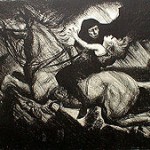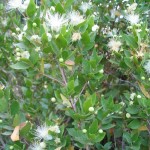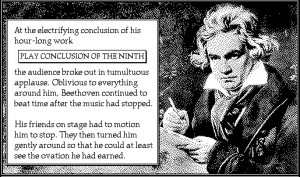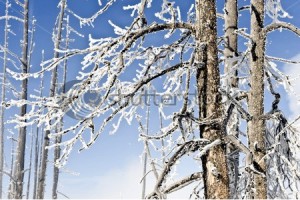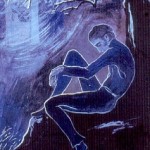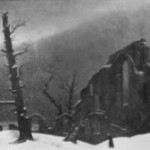Soprano aria from Madama Butterfly, libretto by Luigi Illica and Giuseppe Giacosa
http://en.wikipedia.org/wiki/Madama_Butterfly:
“Madama Butterfly (Madame Butterfly) is an opera in three acts (originally two acts) by Giacomo Puccini, with an Italian libretto by Luigi Illica and Giuseppe Giacosa. Puccini based his opera in part on the short story “Madame Butterfly” (1898) by John Luther Long, which was dramatized by David Belasco. Puccini also based it on the novel Madame Chrysanthème (1887) by Pierre Loti. According to one scholar, the opera was based on events that actually occurred in Nagasaki in the early 1890s.”
Aria setup: In this famous and popular aria of Act 2 Cio-Cio San (Madame Butterfly, soprano) expresses her yearning for her American husband’s return on a beautiful day. She tells Suzuki, her servant, that it will come true.
Performed by:
Yasuko Hayashi– http://www.youtube.com/watch?v=l_vkcFXVSEQ&feature=related
Mika Mori– http://www.youtube.com/watch?v=s_L0m1vYrmk
http://www.youtube.com/watch?v=QERpXO5fDDg&feature=related
Maria Callas–http://www.youtube.com/watch?v=jFQXdJxhmaY&feature=related
Renata Tebaldi–http://www.youtube.com/watch?v=1woH96ROG-c&feature=related
YK’s note: The most moving portrayal of Cio-Cio San (Madama Butterfly) I’ve seen on stage is that by the Chinese star, soprano Zhang Liping 张立平 (See http://en.wikipedia.org/wiki/Zhang_Liping; http://www.stafford-law.com/zhang.htm), in 2004 Opera Lyra of Ottawa production to all sold-out performances. Her rendition of Un Bel di is not available on YouTube, except for a brief excerpt at http://www.youtube.com/watch?v=pXL16AqWZ6A). However, it’s included in her 2010 EMI CD “Arias” (ASIN: B001E45T0M).
Tr. YK Chan 陈耀国译
Un bel dì, vedremo 我梦想在晴朗的一天
levarsi un fil di fumo 一熘烟於
sull’estremo confin del mare. 远远的海平面上升°
E poi la nave appare. 那条船就出现了°
Poi la nave bianca 然后那白船
entra nel porto, 进入港口,
romba il suo saluto. 轰然地发出讯号礼°
Vedi? È venuto!你 瞧? 他来了!
Io non gli scendo incontro. Io no. 我不下去接他° 我不去°
Mi metto là sul ciglio del colle e aspetto, 我到山边去等他,
e aspetto gran tempo 长久地等
e non mi pesa, 但等得久也不会
la lunga attesa. 使我厌倦的°
E uscito dalla folla cittadina, 一个汉子从那人口稠密的小城出来了,
un uomo, un picciol punto 一个小点
s’avvia per la collina. 爬上山来°
Chi sarà? chi sarà? 他是谁? 他是谁?
E come sarà giunto 他来到后
che dirà? che dirà? 会说什么? 他会说什么?
Chiamerà Butterfly dalla lontana. 他会在远处呼唤着蝴蝶
Io senza dar risposta 但我不回答
me ne starò nascosta 只是藏着
un po’ per celia 戲弄他一下
e un po’ per non morire 而一点也不昏亡°
al primo incontro; 在这次首会,
ed egli alquanto in pena 他有些惆怅
chiamerà, chiamerà: 他喊着, 喊着
“Piccina mogliettina, “小娘子,
olezzo di verbena” 桔子花 “
i nomi che mi dava al suo venire. 那是他上次来时呼唤我的名字°
(a Suzuki) (对铃木说)
Tutto questo avverrà, 这一切都会实现,
te lo prometto. 我向你保证°
Tienti la tua paura, 保留你的恐惧,
io con sicura fede l’aspetto. 我以实在的信念等候他回来°



